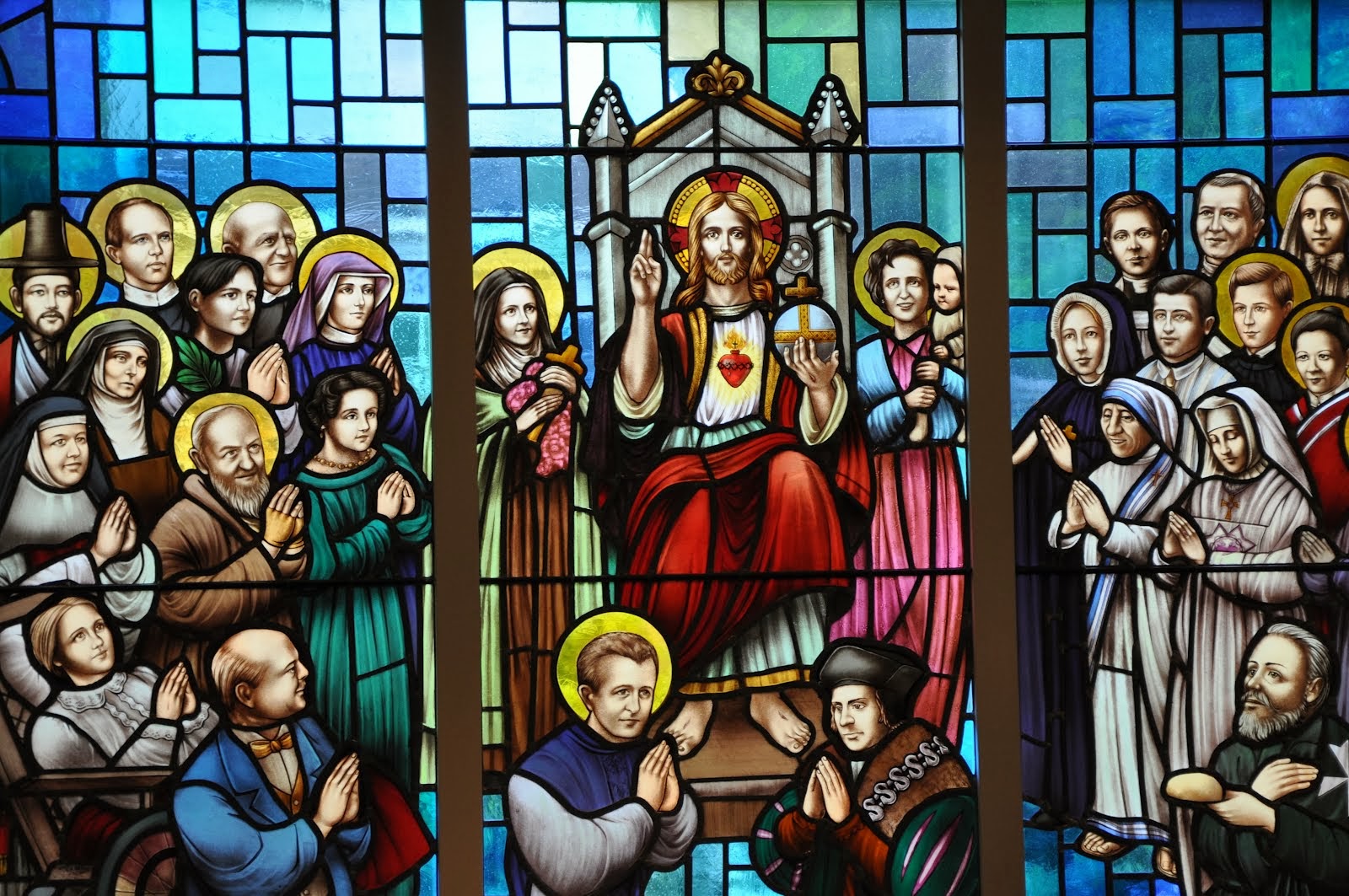
“Scripture says, ‘Ten thousand times ten thousand stood before Him, and thousands of thousands ministered to Him, and they cried, ‘Holy, holy, holy Lord of hosts, the whole creation is full of His glory’.’ We too, therefore, gathering together in one accord in our conscience, should cry out earnestly as with one voice to Him.” St. Clement of Rome (1st century)
“A long as the invocation and prayers have not begun, there is only bread and wine. But after the great and wonderful prayers have been pronounced, then the bread becomes the Body of Our Lord Jesus Christ, and the wine becomes His Blood. Let us come to the celebration of the mysteries.” St. Athanasius (3rd-4th centuries, Doctor of the Church)
“It is not to be doubted but that the dead can be helped by the prayers of holy Church, and the Eucharistic sacrifice, and alms distributed for the repose of their spirits, so that God may deal with them more mercifully than their sins have deserved. The whole Church, I mean, observes this tradition received from the fathers, that prayers should be offered for those who have died in the communion of the Body and Blood of Christ, whenever their names are mentioned in the sacrifice in the usual place.” St. Augustine of Hippo (4th-5th centuries, Doctor of the Church)
“We use the chalice to stand for the tomb, the paten for the stone placed at the mouth of the tomb, the pall and corporal for the winding cloths in which our Lord’s body was wrapped by St. Joseph [of Arimathea] in his work of love.” St. Albert the Great (13th century, Doctor of the Church)
“Finally I beheld God in spirit during Mass, at about the time of the elevation of the Body of Christ. After this vision there remained unto me an indescribable sweetness and great joy which I do think will never fail me all the days of my life.” Bl. Angela of Foligno (13th-14th centuries)
“The psalmist says, The voice of the Lord in magnificence. And this is that voice, when the priest says, For this is My Body, and over the mingled chalice, For this is the chalice of My Blood and what follows. What magnificence is in that voice, that bread and wine should be changed by it into the Body and Blood of Christ!” St. Antoninus (14th-15th centuries)
“When you smell that pleasant odour of incense, you should think how Christ suffered for us so patiently, and how sweet was the scent of His soul’s sacrifice before God and the holy angels in heaven and the holy fathers in limbo.” St. Vincent Ferrer (14th-15th centuries)
“Observe that in Mass, there is made not a simple commemoration or representation of the passion and death of our Redeemer; there is performed in a certain true sense, the selfsame most holy act which was performed on Calvary.” St. Leonard of Port Maurice (17th-18th centuries)
“Having been immolated once on Calvary, [Christ] can do no more; yet, nevertheless, knowing what human weakness is, He feared lest the sacrifice of the Cross, only once offered, might at last make little impression on the faithful. Before long, man would have treated the sacrifice of Calvary as a mere historical fact, consigned to the pages of the Church’s annals, where few even would think of seeking it. So our Lord said to Himself, ‘What was done once on Calvary must needs be renewed until the end of time.” Servant of God Prosper Gueranger (19th century)
“Truly, the Jews did well to shout their Hosanna, as they went, wending in glad procession down the Mount of Olives, towards Jerusalem, entering by the Golden Gate; all was in harmony, and breathed triumph; but how far more fitting is it for us to sing it, at this portentous moment, when the Son of God is about to come down in the midst of us who truly know Him!” Servant of God Prosper Gueranger
“The best way to economize time is to ‘lose’ half an hour each day attending Holy Mass.” Bl. Frederic Ozanam (19th century)
